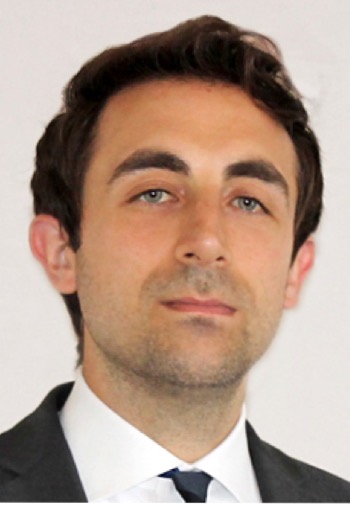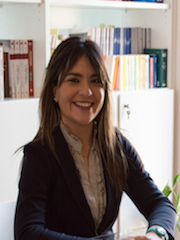Studying at the University of Verona
Here you can find information on the organisational aspects of the Programme, lecture timetables, learning activities and useful contact details for your time at the University, from enrolment to graduation.
Academic calendar
The academic calendar shows the deadlines and scheduled events that are relevant to students, teaching and technical-administrative staff of the University. Public holidays and University closures are also indicated. The academic year normally begins on 1 October each year and ends on 30 September of the following year.
Course calendar
The Academic Calendar sets out the degree programme lecture and exam timetables, as well as the relevant university closure dates..
| Period | From | To |
|---|---|---|
| 1° periodo di lezioni - 12 CFU | Sep 21, 2020 | Dec 14, 2020 |
| 1° periodo di lezioni | Sep 28, 2020 | Dec 14, 2020 |
| Periodo riservato ad eventuali recuperi di lezioni – dicembre 2020 | Dec 15, 2020 | Dec 16, 2020 |
| 2° periodo di lezioni - febbraio/marzo 2020 - 12 CFU | Feb 8, 2021 | Mar 29, 2021 |
| 2° periodo di lezioni - febbraio/marzo 2021 | Feb 15, 2021 | Mar 29, 2021 |
| 2° periodo di lezioni - aprile/maggio 2021 | Apr 7, 2021 | May 12, 2021 |
| 2° periodo di lezioni - aprile/maggio 2021 - 12 CFU | Apr 7, 2021 | May 12, 2021 |
| Periodo riservato ad eventuali recuperi di lezioni – maggio 2021 | May 13, 2021 | May 15, 2021 |
| Session | From | To |
|---|---|---|
| Pre-accertamenti insegnamenti annuali (15 CFU LMG e 12 CFU SSG) | Dec 15, 2020 | Dec 16, 2020 |
| Sessione straordinaria – studenti f.c. e insegnamenti del 1° periodo | Dec 17, 2020 | Dec 23, 2020 |
| Sessione invernale – 2 appelli | Jan 8, 2021 | Feb 11, 2021 |
| Sessione straordinaria – studenti f.c. - marzo 2021 | Mar 30, 2021 | Apr 1, 2021 |
| Pre-accertamenti insegnamenti 2° periodo | May 13, 2021 | May 15, 2021 |
| Sessione estiva – 3 appelli | May 17, 2021 | Jul 26, 2021 |
| Sessione autunnale – 1 appello | Aug 25, 2021 | Sep 18, 2021 |
| Session | From | To |
|---|---|---|
| Sessione autunnale – ottobre 2020 | Oct 22, 2020 | Oct 24, 2020 |
| Sessione invernale – febbraio 2021 | Feb 12, 2021 | Feb 12, 2021 |
| Sessione invernale – marzo 2021 | Mar 22, 2021 | Mar 24, 2021 |
| Sessione estiva – giugno 2021 | Jun 24, 2021 | Jun 26, 2021 |
| Period | From | To |
|---|---|---|
| Festa di Ognissanti | Nov 1, 2020 | Nov 1, 2020 |
| Festa dell'Immacolata | Dec 8, 2020 | Dec 8, 2020 |
| Vacanze di Natale | Dec 24, 2020 | Jan 6, 2021 |
| Vacanze di Pasqua | Apr 2, 2021 | Apr 6, 2021 |
| Festa della liberazione | Apr 25, 2021 | Apr 25, 2021 |
| Festa del lavoro | May 1, 2021 | May 1, 2021 |
| Santo Patrono | May 21, 2021 | May 21, 2021 |
| Festa della Repubblica | Jun 2, 2021 | Jun 2, 2021 |
Exam calendar
Exam dates and rounds are managed by the relevant Law Teaching and Student Services Unit.
To view all the exam sessions available, please use the Exam dashboard on ESSE3.
If you forgot your login details or have problems logging in, please contact the relevant IT HelpDesk, or check the login details recovery web page.
Should you have any doubts or questions, please check the Enrollment FAQs
Academic staff
 bernardo.calabrese@univr.it
bernardo.calabrese@univr.it
 andrea.favaro@univr.it
andrea.favaro@univr.it
 roberto.flor@univr.it
roberto.flor@univr.it
 stefano.gatti@univr.it
stefano.gatti@univr.it
 giorgia.guerra@univr.it
giorgia.guerra@univr.it
 rita.maggi@univr.it
rita.maggi@univr.it
 martina.menon@univr.it
martina.menon@univr.it
 mariafederica.merotto@univr.it
mariafederica.merotto@univr.it
 giuliano.stasio@univr.it
giuliano.stasio@univr.it
 rosamaria.vadala@univr.it
rosamaria.vadala@univr.it
 isabella.zambotto@univr.it
isabella.zambotto@univr.it
Study Plan
The Study Plan includes all modules, teaching and learning activities that each student will need to undertake during their time at the University.
Please select your Study Plan based on your enrollment year.
1° Year
| Modules | Credits | TAF | SSD |
|---|
Roman Law Institutions
History of Medieval and Modern Law
2° Year activated in the A.Y. 2021/2022
| Modules | Credits | TAF | SSD |
|---|
3° Year activated in the A.Y. 2022/2023
| Modules | Credits | TAF | SSD |
|---|
4° Year activated in the A.Y. 2023/2024
| Modules | Credits | TAF | SSD |
|---|
5° Year It will be activated in the A.Y. 2024/2025
| Modules | Credits | TAF | SSD |
|---|
| Modules | Credits | TAF | SSD |
|---|
Roman Law Institutions
History of Medieval and Modern Law
| Modules | Credits | TAF | SSD |
|---|
| Modules | Credits | TAF | SSD |
|---|
| Modules | Credits | TAF | SSD |
|---|
| Modules | Credits | TAF | SSD |
|---|
| Modules | Credits | TAF | SSD |
|---|
Legend | Type of training activity (TTA)
TAF (Type of Educational Activity) All courses and activities are classified into different types of educational activities, indicated by a letter.
Type D and Type F activities
Le attività che consentono l’acquisizione dei crediti riservati alle attività formative a libera scelta dello studente (TAF D) sono le seguenti:
• Un insegnamento previsto nell’elenco delle attività formative (TAF D) allegato al piano didattico del corso di laurea Magistrale in Giurisprudenza;
• Un insegnamento attivato nei Corsi di studi afferenti al Collegio di Giurisprudenza;
• Un laboratorio didattico attivato nei Corsi di studi afferenti al Collegio di Giurisprudenza;
• Un laboratorio didattico attivato nei Corsi di studi afferenti al Dipartimento di Scienze Giuridiche;
• Un insegnamento previsto dall’Offerta Formativa di Ateneo, non impartito nell’ambito dei corsi di studi afferenti al Collegio di Giurisprudenza: il riconoscimento dei crediti acquisiti sarà subordinato alla preventiva presentazione di coerenti programmi formativi valutati dalla Commissione istruttoria per la didattica e approvati dal Collegio didattico.
• Attività formative organizzate dai singoli docenti del Collegio di Giurisprudenza o del Dipartimento di Scienze Giuridiche: previa approvazione del Collegio ad esse verrà attribuito, dopo un’apposita verifica, un credito per ogni 6 ore di frequenza obbligatoria;
• Attività formative che implicano la partecipazione a convegni o seminari organizzati sotto il “logo” del Dipartimento di Scienze Giuridiche o dell’Ateneo: devono essere preventivamente approvate dal Collegio di Giurisprudenza indicando un docente di riferimento del Collegio di Giurisprudenza ovvero del Dipartimento di Scienze Giuridiche. Un credito per ogni giornata di convegno o di seminario si acquisisce dopo apposita verifica che dimostri l’avvenuta fruizione culturale del tema del convegno o del seminario.
Le attività che consentono l’acquisizione dei crediti riservati alle ulteriori attività formative (TAF F) sono le seguenti:
• Informatica (3 cfu)
• Stage;
• Un laboratorio didattico attivato nei Corsi di studi afferenti al Collegio di Giurisprudenza;
• Un laboratorio didattico attivato nei Corsi di studi afferenti al Dipartimento di Scienze Giuridiche.
Al link https://www.univr.it/it/i-nostri-servizi/segreterie-studenti/giurisprudenza#categdoc_7103 la modulistica per l'inserimento di attività non selezionabili in autonomia dallo studente in sede di compilazione del piano degli studi.
| years | Modules | TAF | Teacher | |
|---|---|---|---|---|
| 5° | Law of the digital economy | D |
Matteo Ortino
(Coordinator)
|
|
| 4° 5° | Civil enforcement law | D |
Alberto Maria Tedoldi
(Coordinator)
|
|
| 4° 5° | Economics, financial statement and control of Italian healthcare and social care organizations | D |
Paolo Roffia
(Coordinator)
|
|
| 4° 5° | International criminal law | D |
Lorenzo Picotti
(Coordinator)
|
|
| 4° 5° | Safety and social security | D |
Sylvain Giovanni Nadalet
|
|
| years | Modules | TAF | Teacher |
|---|---|---|---|
| 4° 5° | Banking law | D |
Giovanni Meruzzi
(Coordinator)
|
| 4° 5° | International arbitration law | D |
Annalisa Ciampi
(Coordinator)
|
| 4° 5° | Safe and security law | D |
Marco Peruzzi
|
| 4° 5° | CRISIS AND INSOLVENCY PROCEEDINGS LAW | D |
Alberto Maria Tedoldi
(Coordinator)
|
| 4° 5° | Juvenile Law | D |
Silvana Strano
(Coordinator)
|
| 4° 5° | Legal Medicine | D |
Domenico De Leo
(Coordinator)
|
| 4° 5° | Sociology of law | D |
Carlo Lottieri
(Coordinator)
|
| years | Modules | TAF | Teacher |
|---|---|---|---|
| 4° 5° | Wake up Italia - 2020/2021 | D |
Sergio Noto
(Coordinator)
|
| years | Modules | TAF | Teacher |
|---|---|---|---|
| 4° 5° | Safe and security law | D |
Marco Peruzzi
|
comparative criminal law (2023/2024)
Teaching code
4S011030
Academic staff
Coordinator
Credits
6
Language
Italian
Scientific Disciplinary Sector (SSD)
IUS/17 - CRIMINAL LAW
Period
2° periodo lezioni (2B) dal Apr 3, 2024 al May 23, 2024.
Courses Single
Authorized
Learning objectives
The course will be divided into three modules. The first module will concern the definition: - of the notion, history, methods and function of comparative criminal law; - the main models of criminal codification: civil law and common law in comparison; - the process of codification of European criminal law: consequences and perspectives. The second module will analyze the main European criminal systems: - The function of the penalty and the guiding principles: from the principle of legality to the principle of extrema ratio; - the crime and its constituent elements; - the causes of justification and excuses; - the attempt and participation of persons in the crime; - the corporate responsibility models. The third module will concern the reconstruction and critical analysis of the most controversial or current criminal policy choices, and of the correlative legal discipline, adopted in the main European criminal systems, with regard to the following issues: - aid for suicide and availability of the good of life; - sexual violence, stalking, gender-based violence; - cybercrime, cyber crime and responsibility for artificial intelligence systems; - terrorism; - recycling. The teachers reserve the right, upon request, to make changes, especially to the third module, to allow for the in-depth study of issues that are the subject of proposals and of interest to the students attended. For attending students, the exam program will be based mainly on the topics covered in class, including materials and slides made available; while non-attending students and Erasmus students are asked to contact the teachers to agree on the details of the program and the exam methods.
Prerequisites and basic notions
The course, which requires prior knowledge of the institutes and categories of the general part of the criminal code, requires passing the examination of Criminal Law 1 (or Criminal Law, for the three-year degree course).
Program
The course will be divided into three modules. The first module will concern the definition: - of the notion, history, methods and function of comparative criminal law; - the main models of criminal codification: civil law and common law in comparison; - the process of codification of European criminal law: consequences and perspectives. The second module will analyze the main European criminal systems: - The function of the penalty and the guiding principles: from the principle of legality to the principle of extrema ratio; - the crime and its constituent elements; - the causes of justification and excuses; - the attempt and participation of persons in the crime; - the corporate responsibility models. The third module will concern the reconstruction and critical analysis of the most controversial or current criminal policy choices, and of the correlative legal discipline, adopted in the main European criminal systems, with regard to the following issues: - aid for suicide and availability of the good of life; - sexual violence, stalking, gender-based violence; - cybercrime, cyber crime and responsibility for artificial intelligence systems; - terrorism; - recycling. The teachers reserve the right, upon request, to make changes, especially to the third module, to allow for the in-depth study of issues that are the subject of proposals and of interest to the students attended. For attending students, the exam program will be based mainly on the topics covered in class, including materials and slides made available; while non-attending students and Erasmus students are asked to contact the teachers to agree on the details of the program and the exam methods.
Bibliography
Didactic methods
The teaching will be divided into lectures, exercises and seminars, which may also be held by visiting professors from Italian and foreign universities, aimed at deepening individual topics indicated. During the lessons, the systematic presentation of the topics covered by the Course and the analysis of jurisprudential rulings, including foreign ones, considered useful will be conducted. Students, if attending, will be invited to actively participate, also by intervening in seminars with interventions and contributions to be presented on specific issues, which will be taken into consideration for the final evaluation.
Learning assessment procedures
The final exam, for both attending and non-attending students, consists of a final oral interview. For attending students only, it is possible to take an intermediate test on the first part of the program (50% of the final grade) and to carry out research, to be documented with the drafting of essays, on specific issues that may be exposed in the course. of lectures or in seminars, and the evaluation of which will help determine the final grade.
Evaluation criteria
The exam will be aimed at verifying: • The level of achievement and acquisition of the knowledge and skills described above in the section "Training objectives"; • The ability to connect the acquired knowledge in a systematic and reasoned way, using comparison as an aid in the application of criminal law and specifically in solving problematic issues in a supranational and transnational perspective; • The analytical and argumentative capacity, including the property of language, to be acquired for study and research in the field of comparative law, in addition to the autonomy of judgment, also in the resolution of practical cases involving fundamental institutions of criminal law.
Criteria for the composition of the final grade
Grades are awarded on a scale from 18 to 30, where 30 is the highest grade and 18 is the lowest grade to pass the exam. In case of an excellent knowledge, a high level of linguistic accuracy and an argumentative, reasoning and problem-solving capacity the candidate may earn the highest grade with “cum laude” honor.
Exam language
Italiano
Career prospects
Module/Programme news
News for students
There you will find information, resources and services useful during your time at the University (Student’s exam record, your study plan on ESSE3, Distance Learning courses, university email account, office forms, administrative procedures, etc.). You can log into MyUnivr with your GIA login details: only in this way will you be able to receive notification of all the notices from your teachers and your secretariat via email and soon also via the Univr app.
Language skills
Graduation
Internships
Internships are aimed at enabling students to gain direct knowledge of the world of work and to acquire specific professional skills.
Internships are carried out under the responsibility of an individual lecturer, and can be carried out in professional firms, public administration bodies and companies recognised by the University of Verona.
Any CFU credits gained by doing internships will be recognised and recorded by the University in accordance with the relevant University regulations in force (Regolamento d’Ateneo per il riconoscimento dei crediti maturati negli stage universitari).
For further information on internships, please go to: https://www.univr.it/it/i-nostri-servizi/stage-e-tirocini.

 +39 045 842 5387
+39 045 842 5387























































